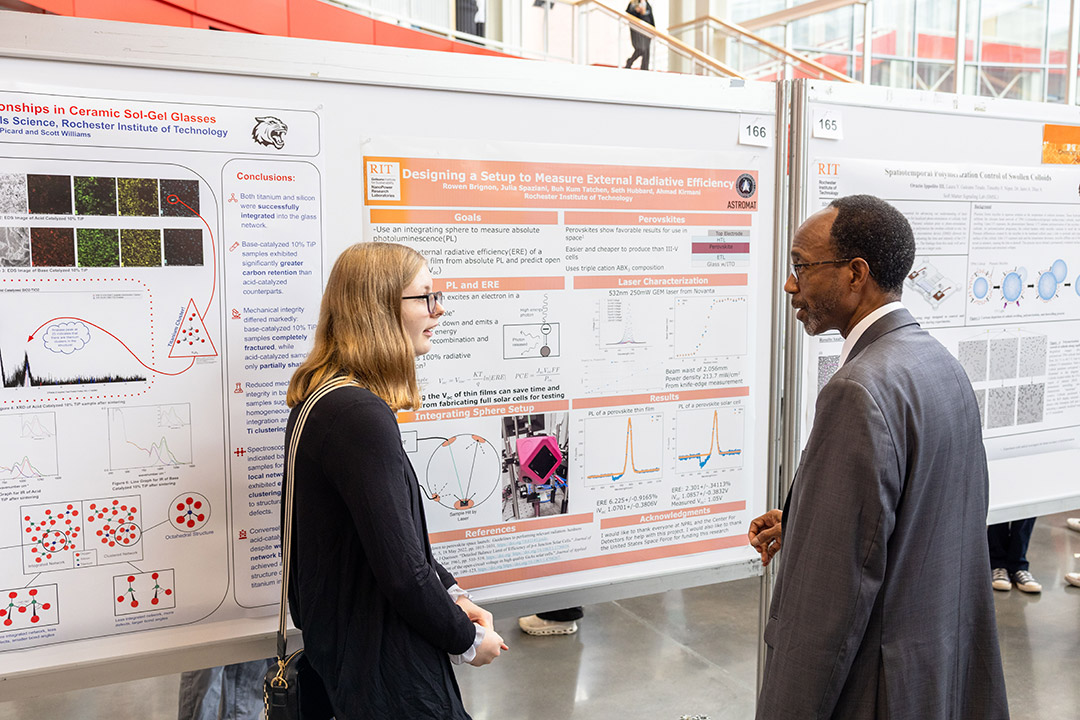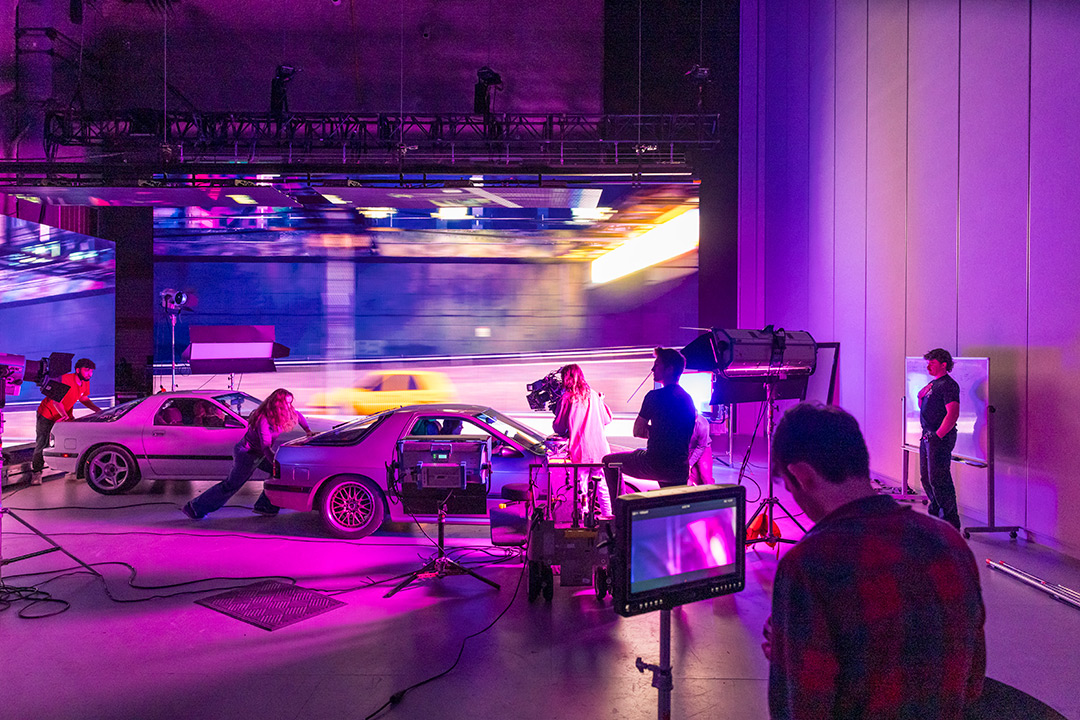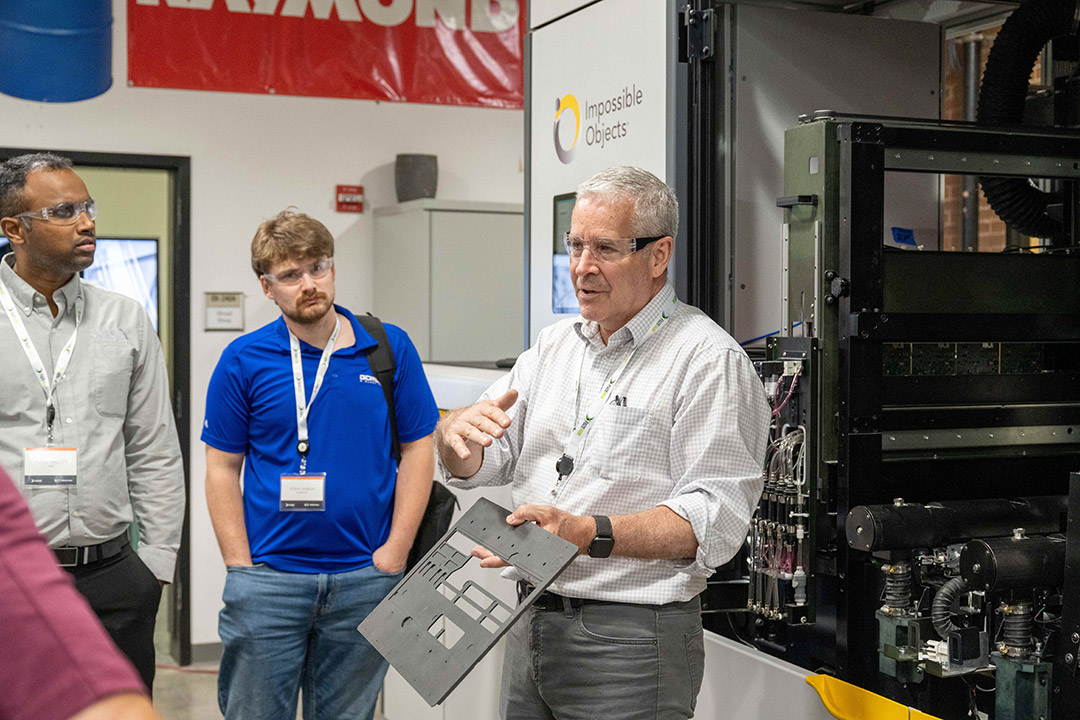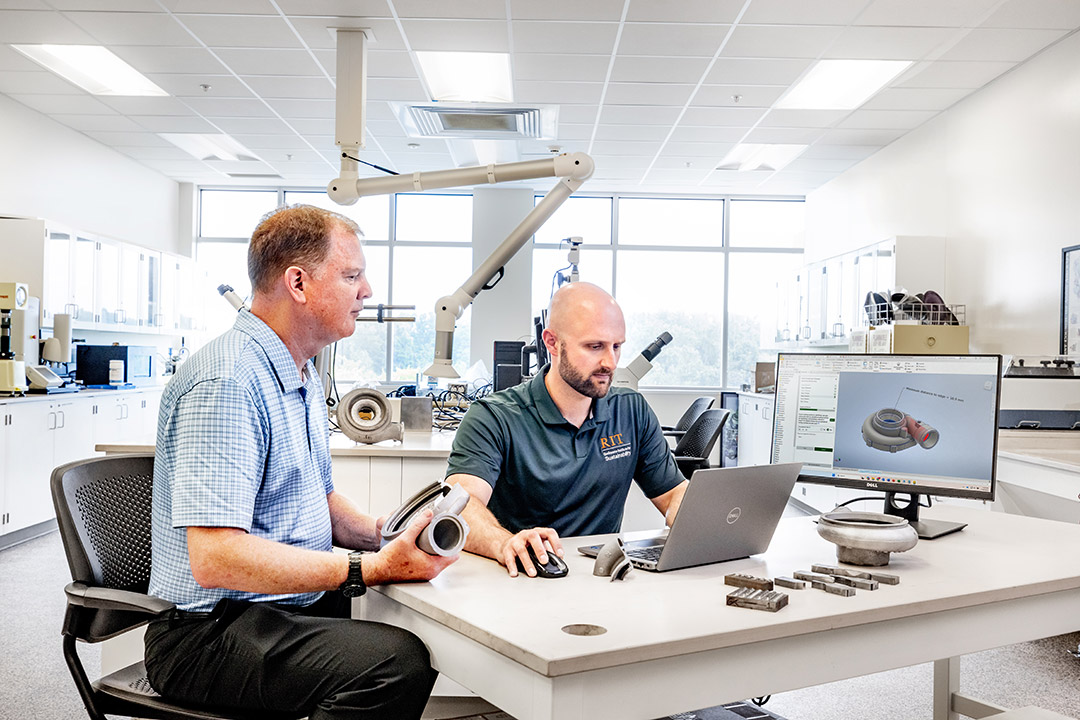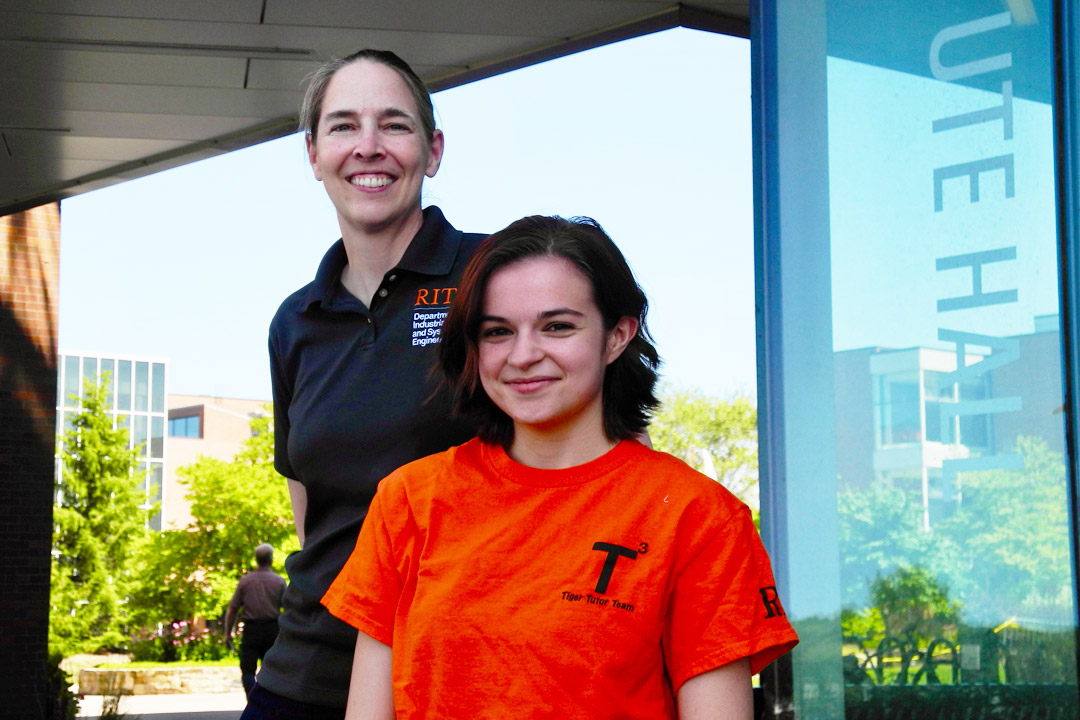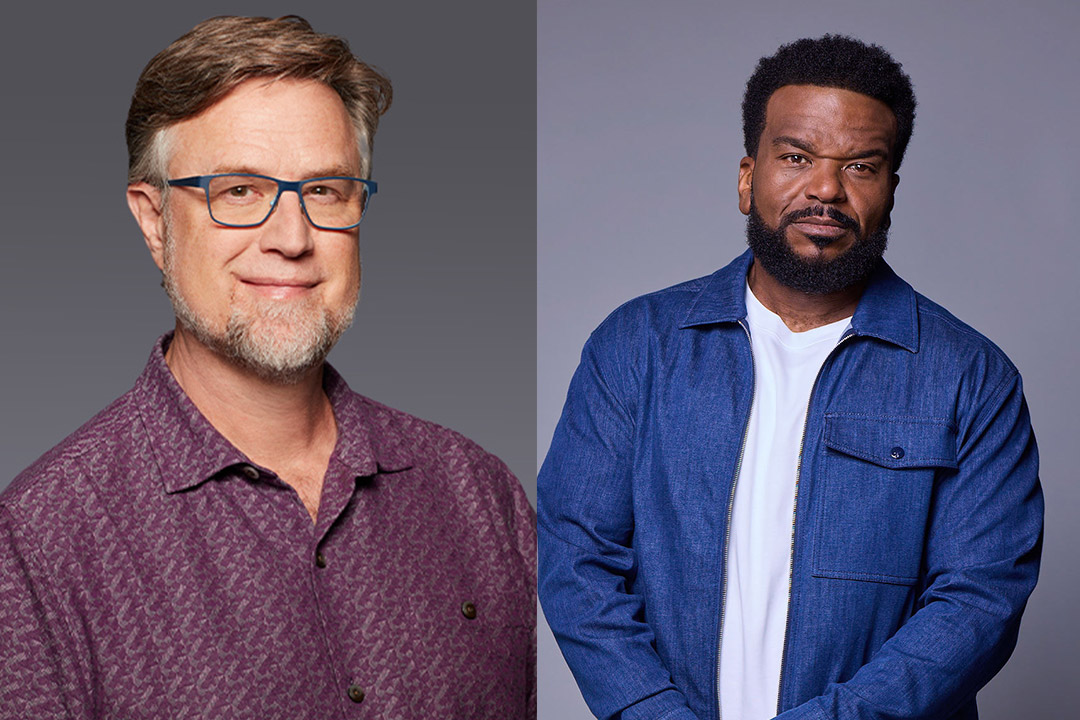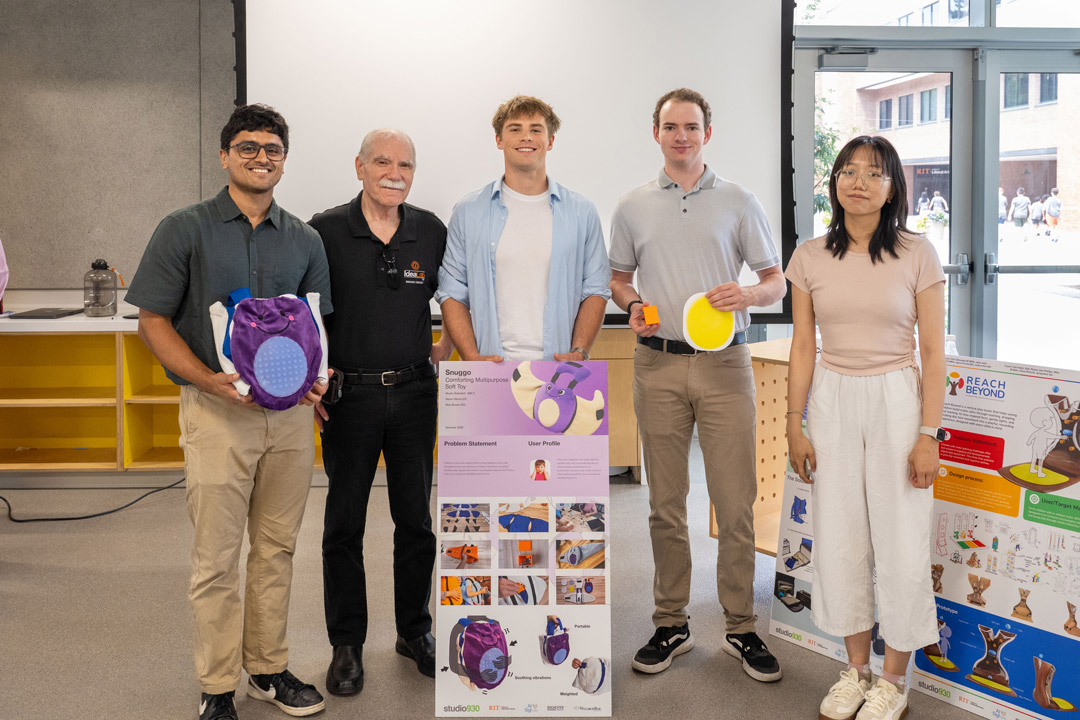With potential breakthroughs in AI, engineering, health sciences, and more, students are learning to solve global challenges
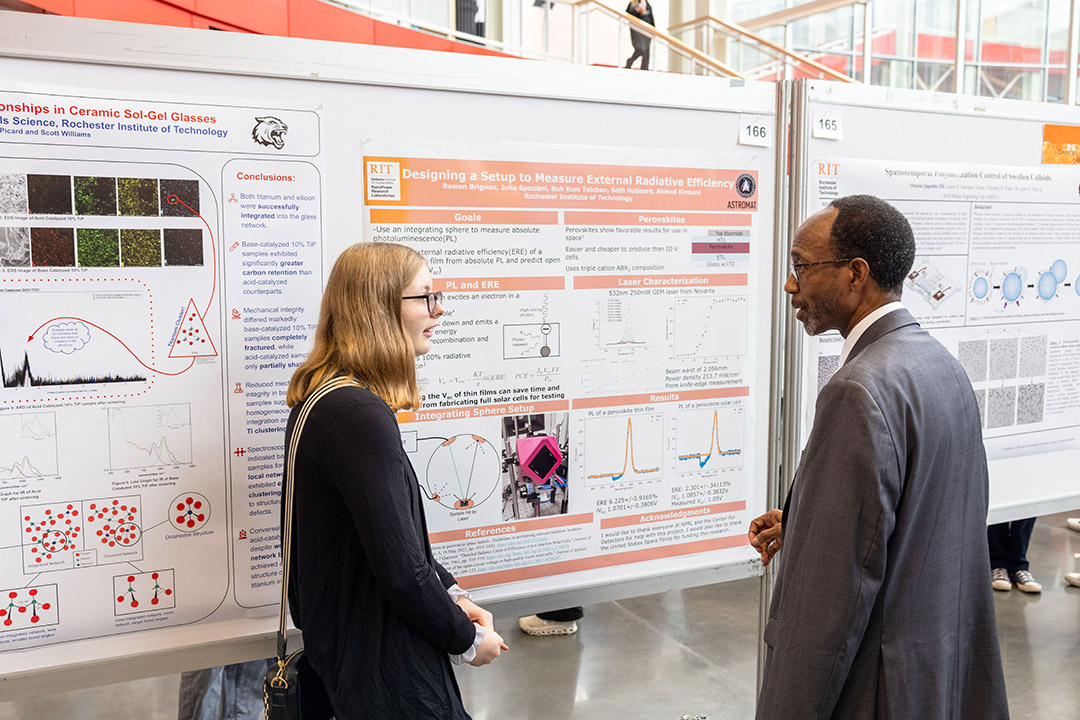
Peter Schuck/RIT
RIT student Rowen Brignon, left, has the unique opportunity to discuss her solar cell technology research with NASA leader and RIT alumnus and trustee Clayton Turner. This year’s Undergraduate Research Symposium on July 31 featured the work of more than 150 students from a variety of disciplines.
RIT student Rowen Brignon had been rehearsing her research presentation on solar cells for weeks but never imagined that she would be sharing her work with NASA leader and RIT alumnus and trustee Clayton Turner.
“I can’t even believe this,” said Brignon, a fourth-year physics major from Buffalo, N.Y. “Just the fact that I was able to talk to him about the impact of my research on the future of solar cells in space, and that he was so engaged in my work, is a dream come true.”
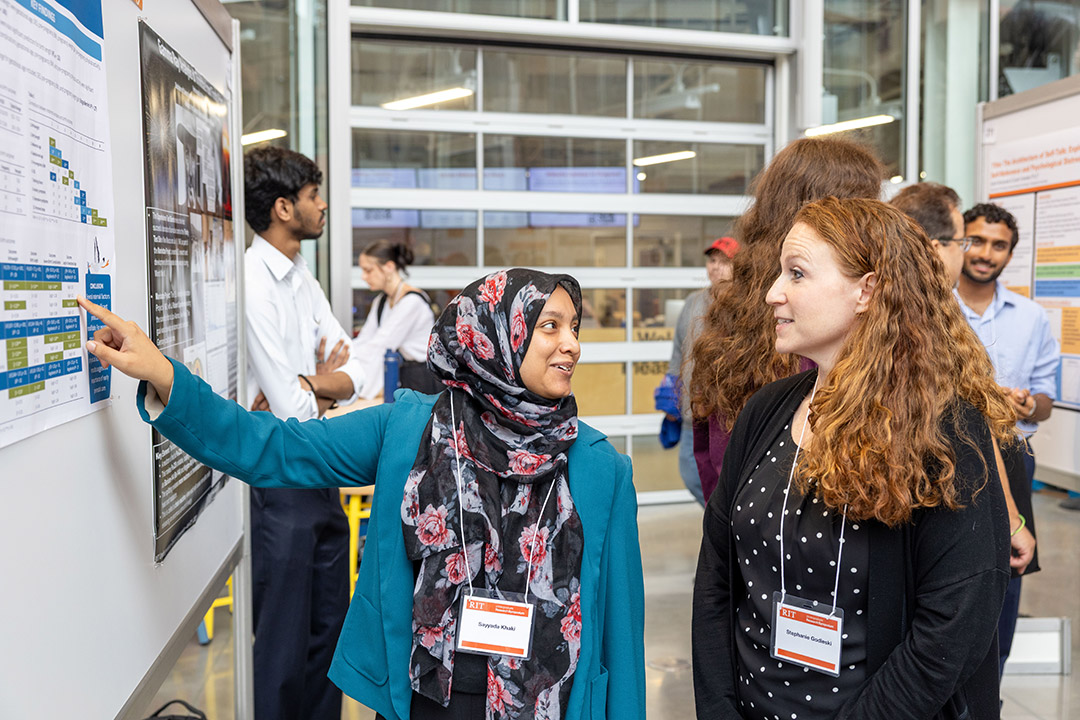
Peter Schuck/RIT
Psychology student Sayyada Khaki, left, reviews her poster on her research on maternal health with her faculty mentor Stephanie Godleski. Godleski understands the impact she has on undergraduate students when it comes to developing their professional skills and ensuring student success.
Brignon was one of more than 150 students who presented their findings at this year’s Undergraduate Research Symposium on July 31. Turner, a 1990 electrical engineering graduate and NASA’s associate administrator for the Space Technology Mission Directorate, returned to campus to offer the event’s keynote address. As he walked through rows of research displays in the SHED, he was amazed by the level of dedication displayed by the students.
“I can hear the excitement in the students’ voices as they explain their research,” Turner said. “When I was a student here at RIT, I was involved in research, but I didn’t do anything like what these students are doing. They are finding the solutions to the world’s problems faster than ever before.”
From artificial intelligence to health sciences, sustainability, engineering, and more, students from every college had the opportunity to talk about their research.
By blending her interests in psychology and public health, fourth-year student Sayyada Khaki is hoping that her research will improve public understanding of maternal health.
“The part of psychology that first drew me in was the idea of using research to understand why and how people make the choices they do. But I also believe that we can use data to improve our communities by empowering vulnerable populations.”
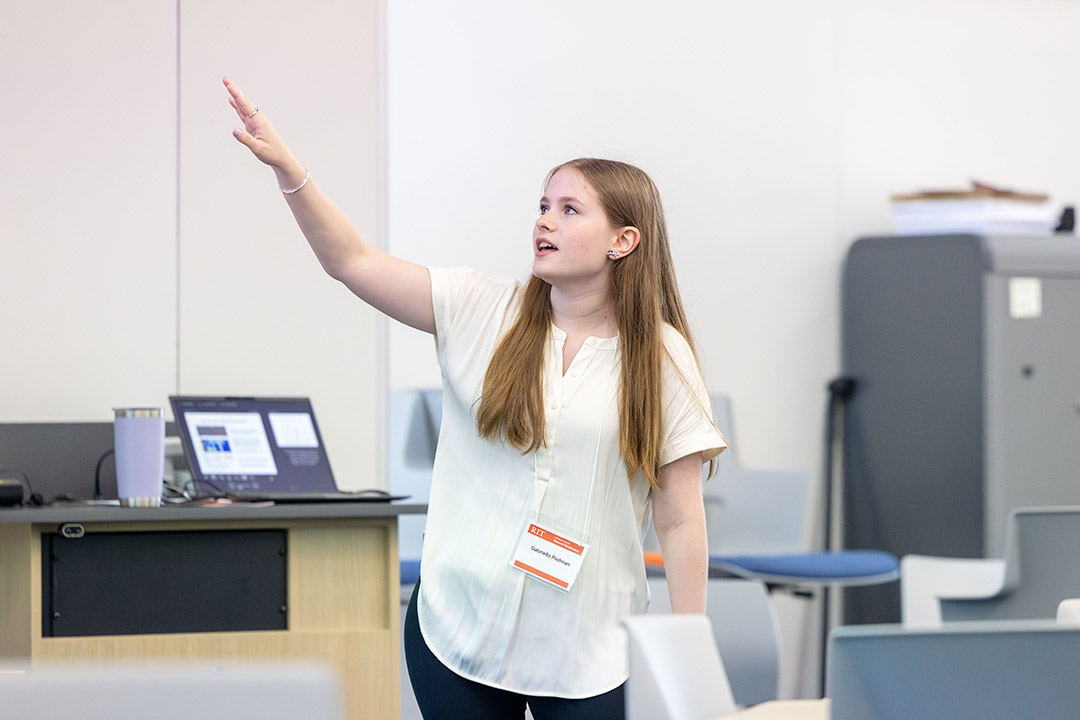
Peter Schuck/RIT
Biochemistry student Gabriella Redman delivers her oral presentation on alternative methods of identifying and eradicating breast cancer cells during the Undergraduate Research Symposium.
Khaki, who was born prematurely in Tanzania, is cognizant of the lack of prenatal care that, she said, leads to high rates of maternal and child mortality in many low-income countries.
“Working on research as an undergraduate has given me the opportunity to see what a career in this field would look like and improve on the skills and knowledge I learn in many of my psychology classes. This is allowing me to gain a better feel for my future academic pursuits.”
Faculty mentors play a key role in not only helping undergraduate students realize the impact of their research, but also in encouraging their successes through building lasting professional relationships.
“My role as a faculty mentor is to promote research exploration and independence while also providing support, encouragement, and opportunities for growth in technical knowledge and skills,” said Stephanie Godleski, associate professor in the Department of Psychology and Khaki’s mentor. “For me, fostering undergraduate student research interest and engagement is one of the most important and rewarding parts of being a faculty member.”
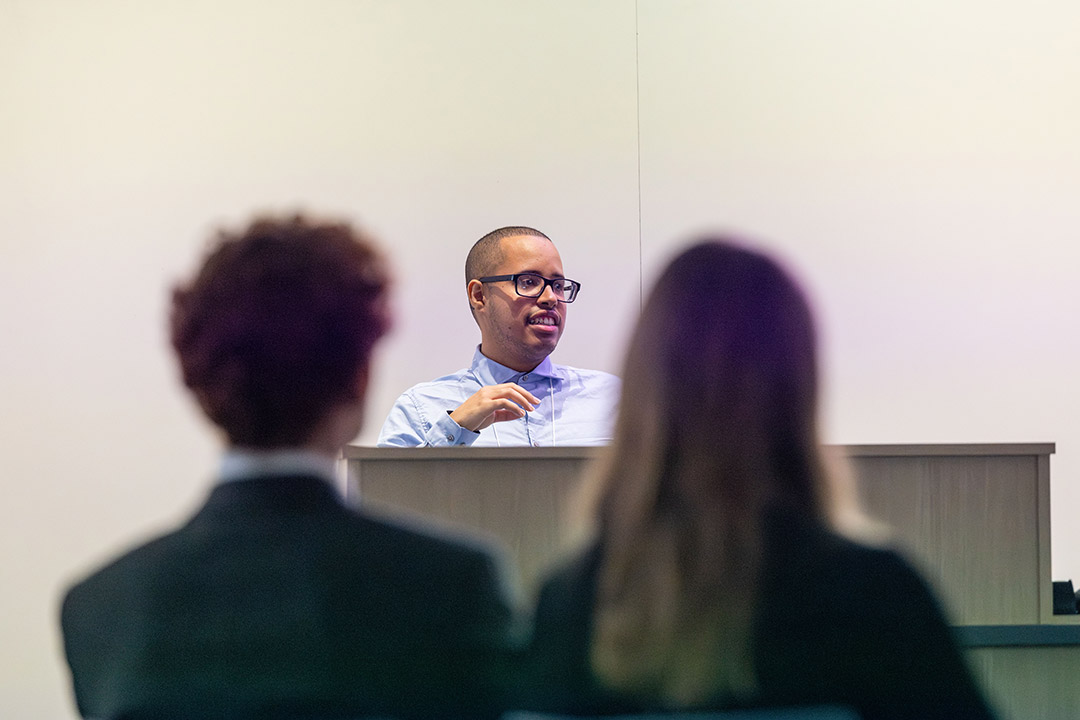
Peter Schuck/RIT
Eduard Velazquez, a fourth-year computer engineering technology major, presents his talk on machine learning-based monitoring of wireless Internet of Things devices at this year’s Undergraduate Research Symposium.
Gabriella Redman, a fourth-year biochemistry student from Rochester, N.Y., is working on an emerging treatment for breast cancer that uses dyes and light beams to target cells.
“I didn’t think that I would become so interested in research, but being in a lab gets me excited,” she said. “Gathering samples and seeing a hypothesis proved as true is so cool.”
As for Brignon’s research, Turner sees the promise in her work as he looks at a photo of his young grandson.
“The number one challenge when considering the lunar surface is power,” he explained. “The work that Rowen is doing now on solar cells is going to enable this young child and his peers to one day live and work on the moon.”
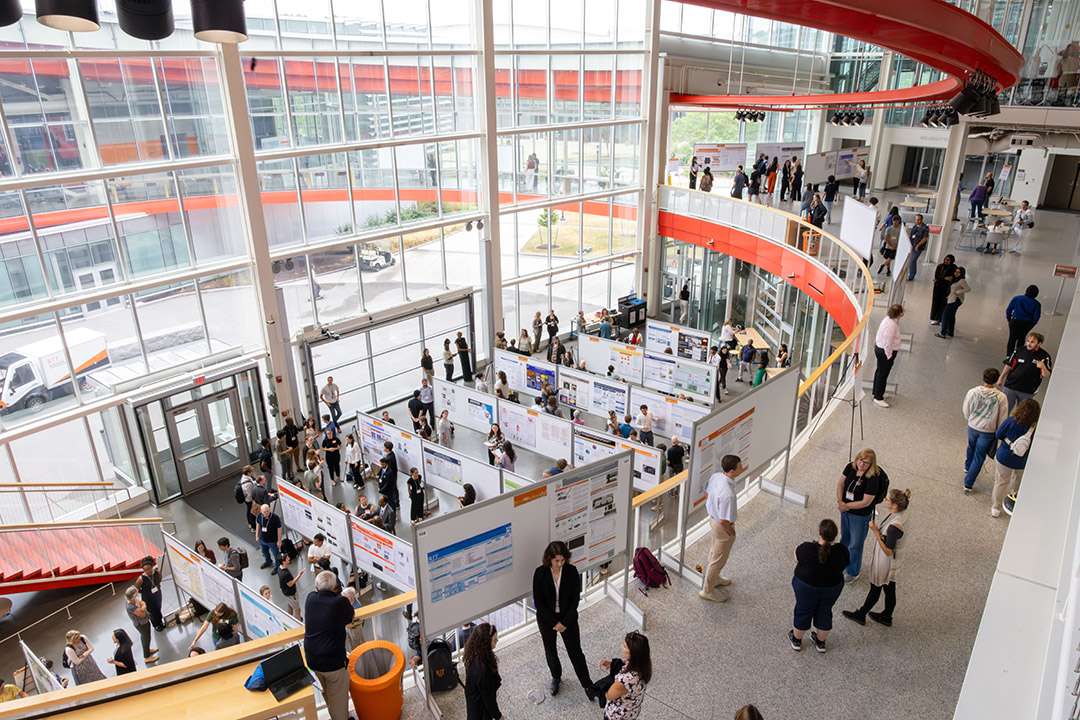
Peter Schuck/RIT
More than 150 students from a variety of disciplines presented their work at this year’s Undergraduate Research Symposium on July 31 in the SHED.



